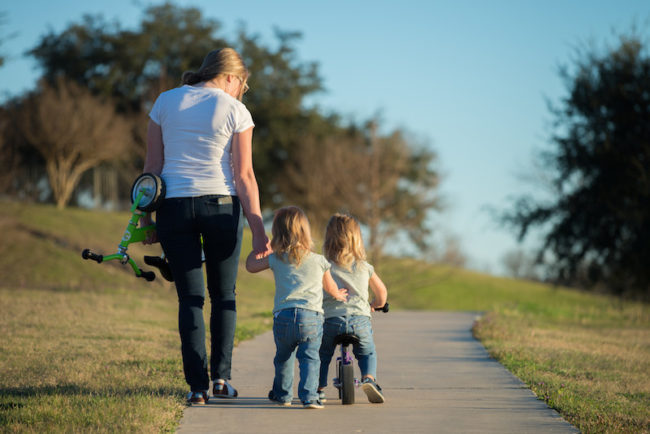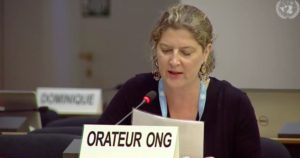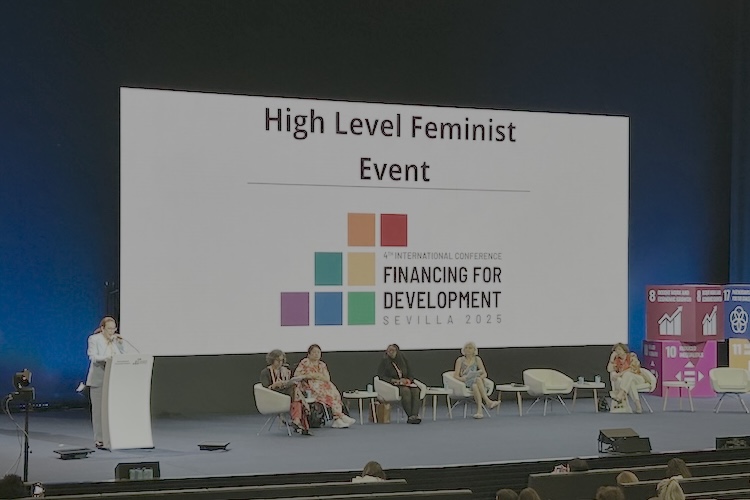Informal education must be recognized, parents better supported
05.07.20
UN Geneva, Human Rights Council - At the meeting with the Special Rapporteur on the right to education, MMM drew attention to how, In the context of the pandemic and imposed lockdown, the demand for unpaid care work and informal education has increased and reinforced pre-existing gender inequalities in sharing this essential work.

Before the lockdowns, parents, in particular mothers, were already facing difficulties raising their children under proper conditions, often juggling between their educational responsibilities and their need to make a living.
With widespread school closures, added unpaid childcare provision has disproportionally fallen on mothers. A British sociologist from Kent University even refers to a “return of the 1950’s housewife”. Home schooling has also put an additional strain on mothers.

Mélanie Nédélec delivering the Statement on behalf of MMM
In addition to the health crisis, the economic hardship brings uncertainties and fears, which can feed discrimination and xenophobia. In this instance, informal education in the family is crucial. It is indeed within the family that life-skills are learned, and that the transmission of values such as respect and tolerance takes place.
In conclusion, MMM called on Member States to recognize the important role of informal education, and to support parents, especially mothers, by enabling them to fulfill this role under proper conditions.
![]() MMM Oral Statement for download
MMM Oral Statement for download
MMM delivered its during the Interactive Dialogue with the UN Special Rapporteur on the Right to Education, which took place on 3rd July during the 44th Session of the UN Human Rights Council.
Time Poverty and the Motherhood Penalty – Unveiling Economic and Social Injustices
09.07.24
Mothers play an essential role in families by ensuring their loved ones are nourished, educated, and healthy, but their unpaid care work often leads to economic and social injustices, known
Envisioning care as a common thread to global crises
29.07.24
UN New York - Our virtual HLPF side-event brought together experts to shed light on how the various global crises we face (in particular climate change and other environmental crises,
We call for multi-stakeholder approach to recognise and support unpaid care work
21.07.24
UN New York - Participating in the meeting of the UN Economic and Social Council (ECOSOC) on care and support systems, MMM reaffirmed the principle of co-responsibility, which should underpin








